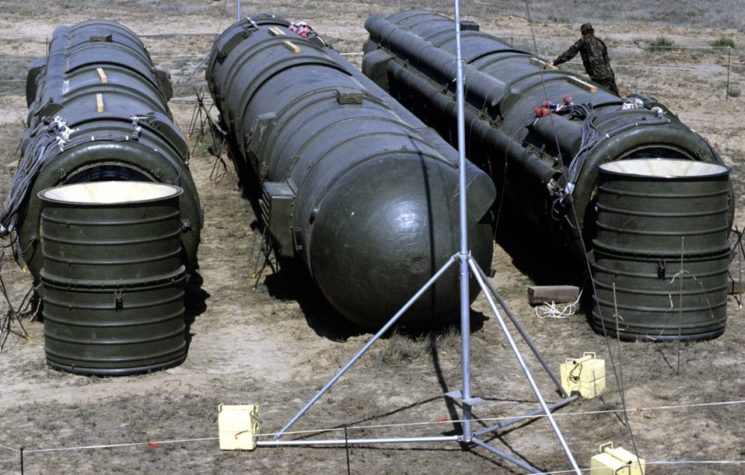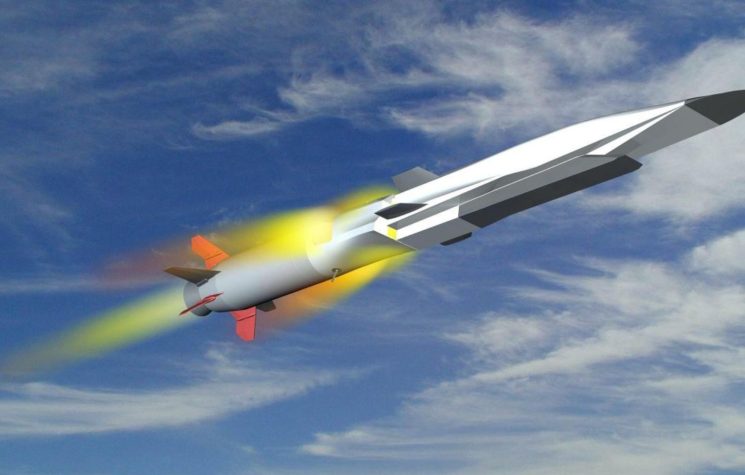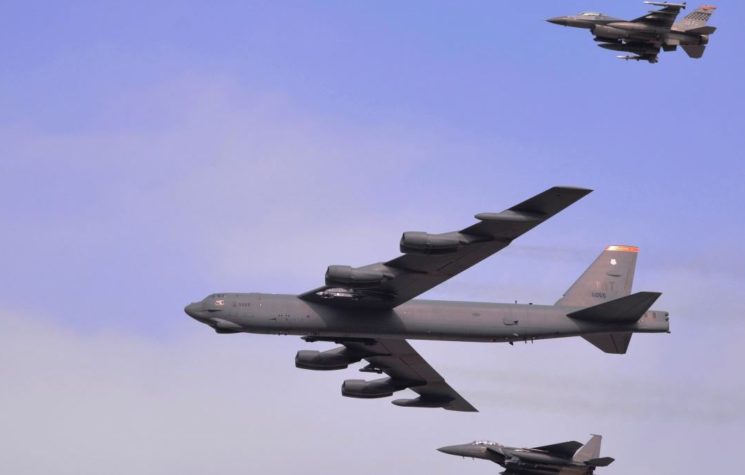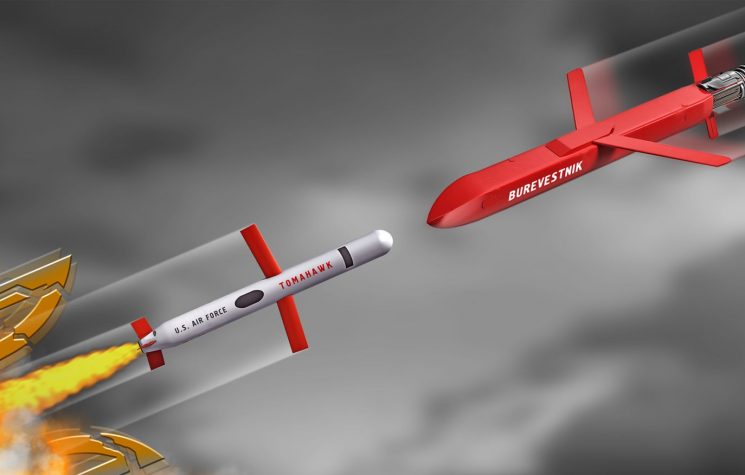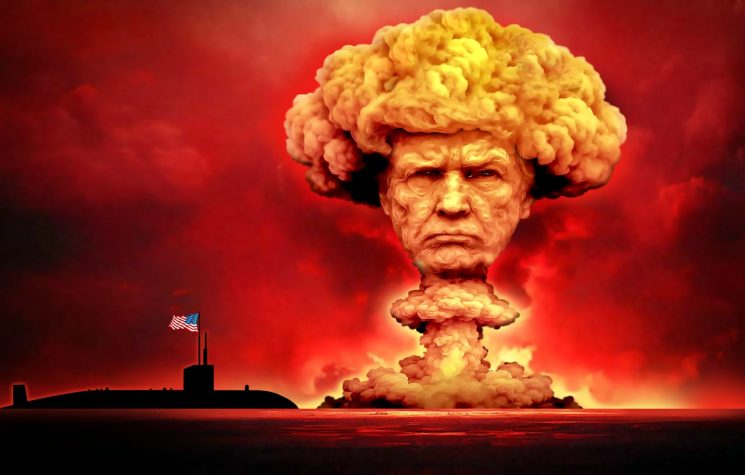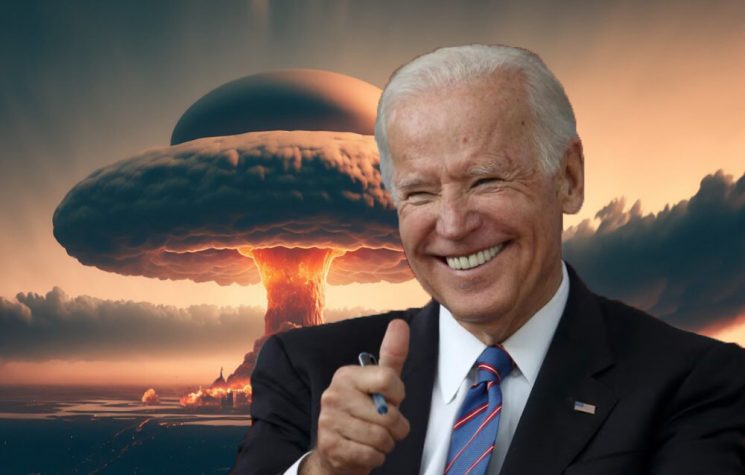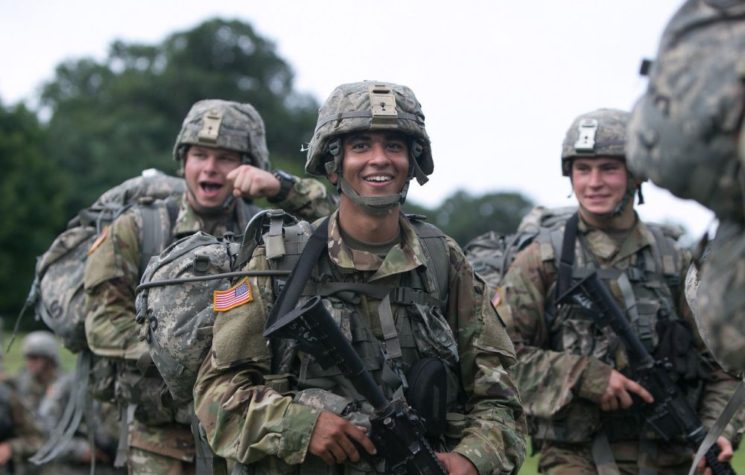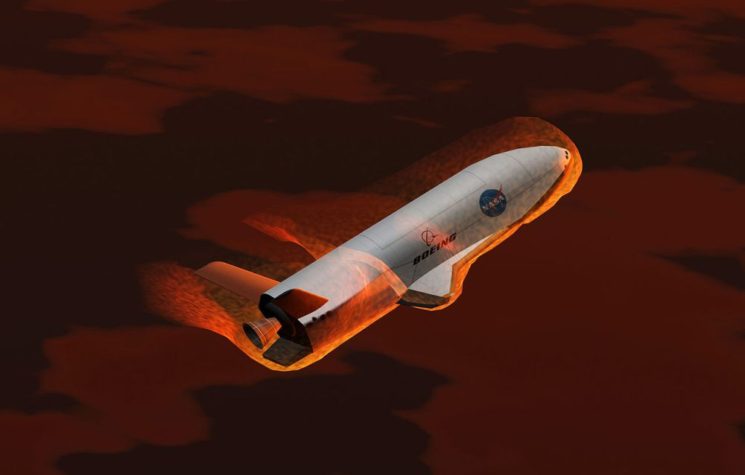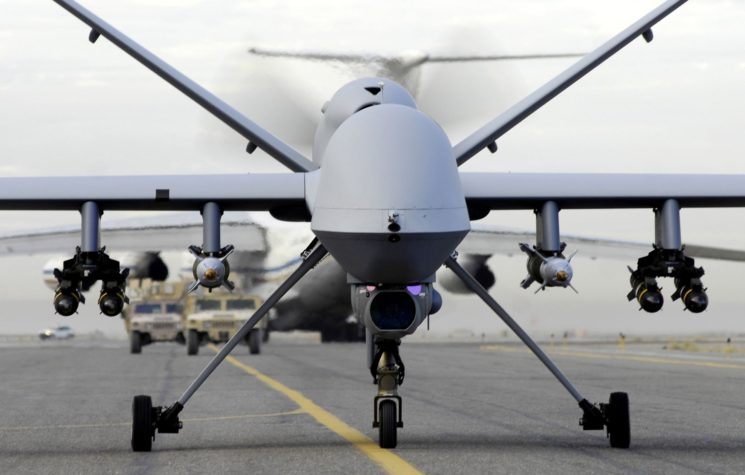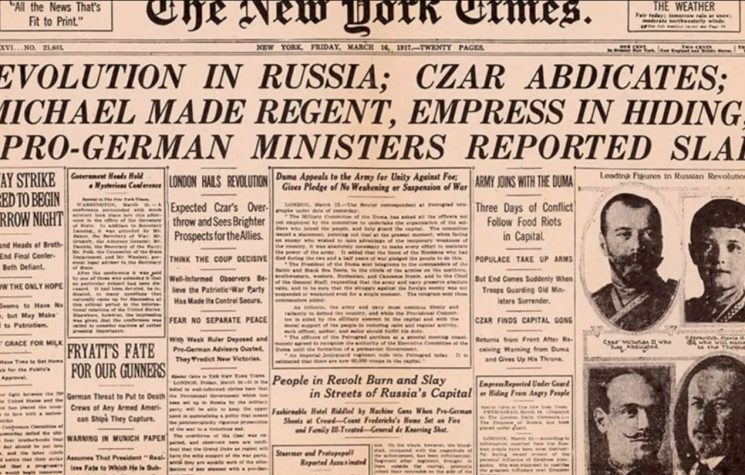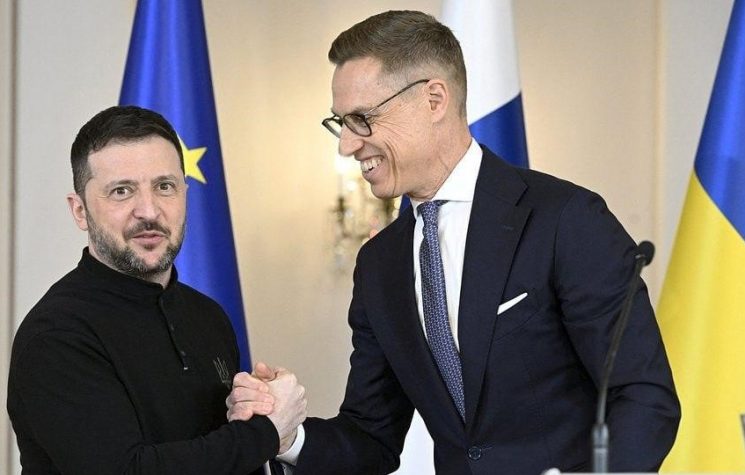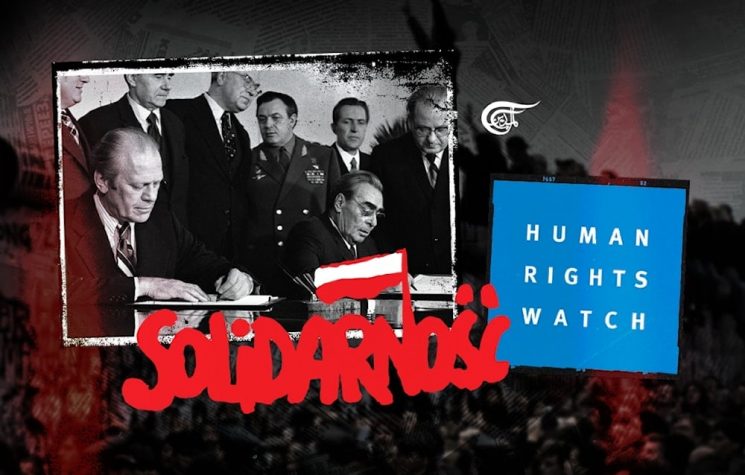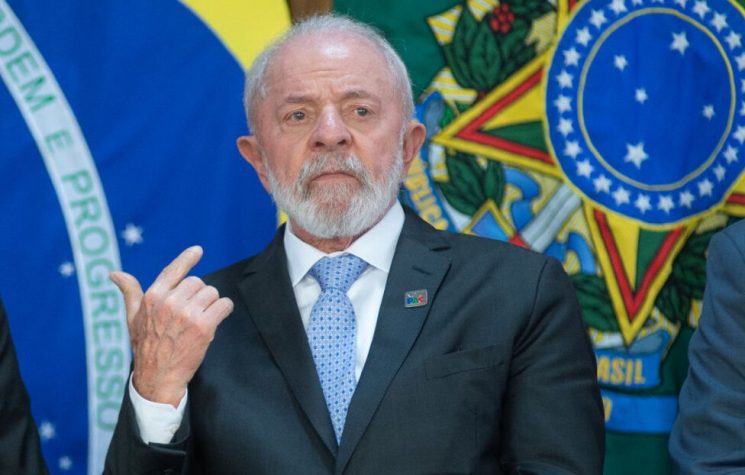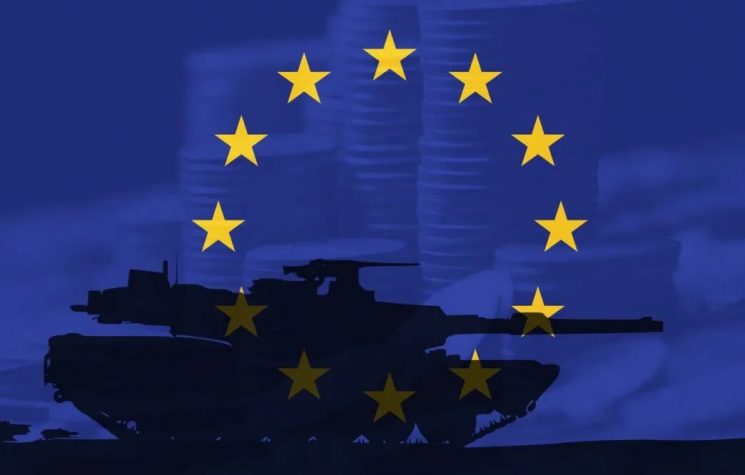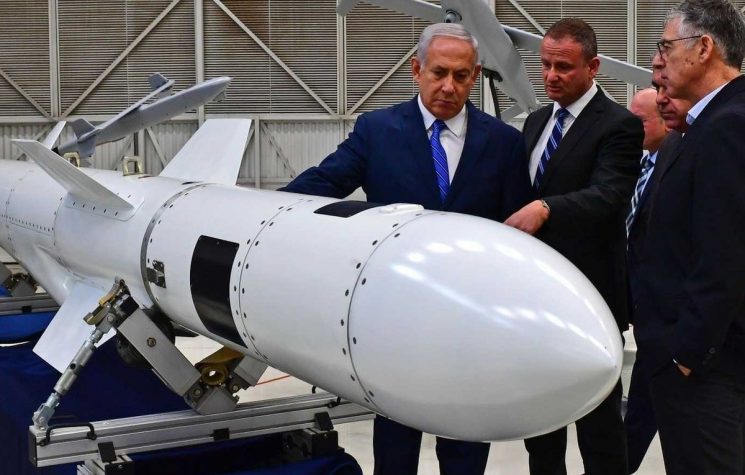Moscow will not engage in an exhausting arms race, and the country’s military spending will gradually decrease as Russia does not seek a role as the “world gendarme,” President Vladimir Putin said. Moscow is not seeking to get involved in a “pointless” new arms race, and will stick to “smart decisions” to strengthen its defensive capabilities, Putin said on Friday during an annual extended meeting of the Defense Ministry board. “Intelligence, brains, discipline and organization” must be the cornerstones of the country’s military doctrine, the Russian leader said. The last thing that Russia needs is an arms race that would “drain” its economy, and Moscow sure does not want that “in any scenario,” Putin pointed out.
It’s easy to forget it today, but the USSR was, in its time, an “exceptionalist” country. It was the world’s first socialist country – the “bright future“; it set an example for all to follow, it was destined by History. It had a mission and was required by History to assist any country that called itself “socialist”. The USSR had bases and interests all over the world. As the 1977 USSR Constitution said:
the Soviet state, a new type of state, the basic instrument for defending the gains of the revolution and for building socialism and communism. Humanity thereby began the epoch-making turn from capitalist to socialism.
A novus ordo seclorum indeed.
Russia, however, is just Russia. There is no feeling in Moscow that Russia must take the lead any place but Russia itself. One of the reasons, indeed, why Putin is always talking about the primacy of the UN, the independence of nation states, the impermissibility to interfere in internal activities – the so-called “Westphalian” position – is that he remembers the exceptionalist past and knows that it led to a dead end. Moscow has no interest in going abroad in search of internationalist causes.
Internationalism/exceptionalism and nationalism: the two have completely different approaches to constructing a military. The first is obsessed with “power projection“, “full spectrum superiority“, it imagines that its hypertrophied interests are challenged all over the planet. Its wants are expensive, indeterminate, unbounded. The other is only concerned with dealing with enemies in its neighbourhood. Its wants are affordable, exact, finite. The exceptionalist/interventionist has everything to defend everywhere; the nationalist has one thing to defend in one place. It is much easier and much cheaper to be a nationalist: the exceptionalist/interventionist USA spends much more than anyone else but always needs more; nationalist Russia can cut its expenditure.
The USSR’s desire to match or exceed the USA in all military areas was a contributing factor to the collapse of its alliance system and the USSR itself. Estimates are always a matter for debate, especially in a command economy that hid its numbers (even when they were calculable), but a common estimate is a minimum of 15% of the USSR’s production went to the military. But the true effort was probably higher. The USSR was involved all over the world shoring up socialism’s “bright future” and that cost it at home.
Putin & Co’s “bright future” is for Russia only and the world may do as it wants about any example or counterexample it may imagine there. While Putin may occasionally indulge himself by offering opinions about liberalism and oped writers gas on about the Putin/Trump populism threat, Putin & Co are just trying to do what they think best for Russia with, as their trust ratings suggest (in contrast with those of the rulers of the “liberal” West), the support and agreement of most Russians.
The military stance of the former exceptionalist country is all gone. As the USSR has faded away, so have its overseas bases and commitments: the Warsaw Pact is gone together with the forward deployment of Soviet armies; there are no advisors in Vietnam or Mozambique; Moscow awaits with bemusement the day next January when the surviving exceptionalist power and its minions will have been in Afghanistan twice as long as the USSR was. The United States, still exceptionalist, still imagining it is spreading freedom and democracy, preventing war and creating stability, has bases everywhere and thinks that it must protect “freedom of navigation” to and from China in the South China Sea. It has yet to learn the futility of seeing oneself as The World’s Example.
Putin & Co have learned: Russia has no World-Historical purpose and its military is just for Russia. They understand what this means for Russia’s Armed Forces:
Moscow doesn’t have to match the US military; it just has to checkmate it.
And it doesn’t have to checkmate it everywhere, only at home. The US Air Force can rampage anywhere but not in Russia’s airspace; the US Navy can go anywhere but not in Russia’s waters. It’s a much simpler job and it costs much less than what Stalin, Khrushchev and Brezhnev were attempting; it’s much easier to achieve; it’s easier to plan and carry out. The exceptionalist/interventionist has to plan for Everything; the nationalist for One Thing.
Study the enemy, learn what he takes for granted and block it. And the two must haves of American conventional military power as it affects Russia are 1) air superiority and 2) assured, reliable communications; counter those and it’s checkmated: Russia doesn’t have to equal or surpass the US military across the board, just counter its must haves.
Russia’s comprehensive and interlocking air defence weaponry is well known and well respected: it covers the spectrum from defences against ballistic missiles to small RPVs, from complex missile/radar sets to MANPADS; all of it coordinated, interlocking with many redundancies. We hear US generals complaining about air defence bubbles and studies referring to Russia’s “anti-access/area-denial (A2AD) exclusion zones“. Russian air defence has not been put to the full-scale test but we have two good indications of its effectiveness. The first was the coordinated RPV attack on Russian bases in Syria last year in which seven were shot down and six taken over, three of them landed intact. Then, in the FUKUS attack of April 2018, the Russians say the Syrian AD system (most of which is old but has benefited from Russian coordination) shot down a large number of the cruise missiles. (FUKUS’ claims are not believable).
The other area, about which even less is known are Russian electronic warfare capabilities: “eye-watering” says a US general; “Right now in Syria we are operating in the most aggressive EW environment on the planet from our adversaries. They are testing us everyday, knocking our communications down, disabling our EC-130s, etcetera.” Of course, what the Americans know is only what Russia wants them to know. There is speculation about an ability to spoof GPS signals. AEGIS-equipped warships seem to have trouble locating themselves (HNoMS Helge Ingstad) or avoiding being run into (USS Lake Champlain, USS John McCain, USS Fitzgerald). Bad seamanship may, of course, be the cause and that’s what the US investigations claim. So more rumour than fact but a lot of rumour.
In the past two or three decades US air power has operated with impunity; it has assumed that all GPS-based systems (and there are many) will operate as planned and that communications will be free and clear. Not against Russia. With those certainties removed, the American war fighting doctrine will be left scrabbling.
But AD and EW are not the only Russian counters. When President Bush pulled the USA out of the ABM Treaty in 2001, Putin warned that Russia would have to respond. Mutual Assured Destruction may sound crazy but there’s a stability to it: neither side, under any circumstance, can get away with a first strike; therefore neither will try it. Last year we met the response: a new ICBM, a hypersonic re-entry vehicle, a nuclear-powered cruise missile with enormous flight time and a similar underwater cruise missile. No defence will stop them and so MAD returns. A hypersonic anti-shipping missile will keep the US Navy out of Russian waters. And, to deal with the US Army’s risible ground forces in Europe, with or without NATO’s other feeble forces, Russia has re-created the First Guards Tank Army. Checkmate again.
No free pass for US air power, strained and uncertain communications, a defeated ground attack and no defence against Russian nuclear weapons. That’s all and that’s enough.
And that is how Moscow does it while spending much less money than Washington. It studies Washington’s strengths and counters them: “smart decisions”. Washington is starting to realise Russia’s military power but it is blinded and can only see its reflection in the mirror: the so-called “rising threat from Russia” would be no threat to a Washington that stayed at home.
If you know the enemy and know yourself, you need not fear the result of a hundred battles. If you know yourself but not the enemy, for every victory gained you will also suffer a defeat. If you know neither the enemy nor yourself, you will succumb in every battle.
– Sun Tzu








